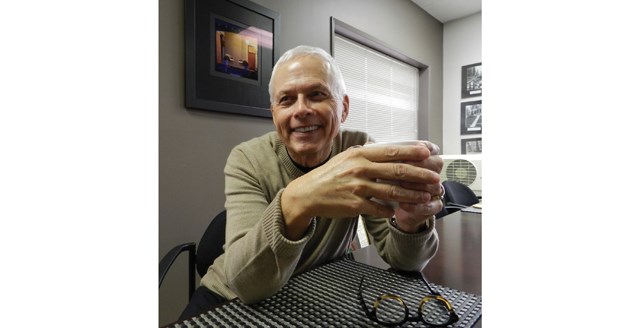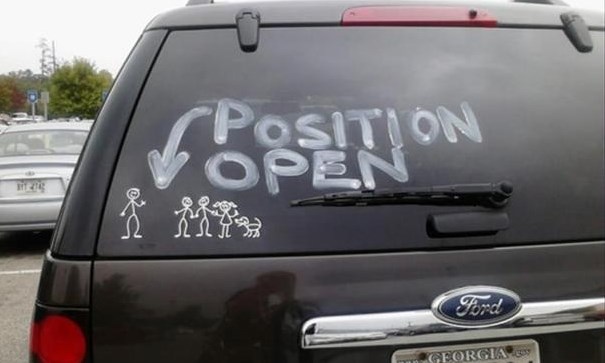IF you’ve ever watched the hit U.S. sitcom Modern Family, you’ll have a fair idea of how the traditional perception of a household make up of husband, wife and two kids is challenged on a weekly basis.
As the show portrays, there can be same sex parents, senior husbands with a wife half their age and adopted kids, sometimes all under the one roof.
In short, family life in your average, modern home is anything but average, including in Richmond.
Touchstone Family Association’s executive director Michael McCoy recognizes more than most how that family unit has changed in his 30 plus years in the field of community care.
“Family is an environment, not a structure,” said McCoy who retires from his role at the end of March.
“It doesn’t necessarily need to be mom, dad and the two kids. Every kid’s family is what it is; not what you see in the movies.
“A group of people who are looking after and caring for each other; that, to me, is what family is.
“There could be aunts and uncles looking after the kids, or grandparents, foster parents; they are all families.”
And Jennifer Vadeboncoeur, an associate professor at UBC’s Faculty of Education, said advances in fertility treatments, leading to an increasing age for motherhood, could mean families getting smaller in decades to come.
“Generally speaking, there are several factors affecting what the family unit looks like, including the percentage of married versus common law relationships and same-sex couples having children,” said Vadeboncoeur, whose fields of study includes human relationships and public health, with expertise in child/parent relationships.
Vadeboncoeur also suggested that people, in general, realized many decades ago that a “family unit” doesn’t necessarily mean “mom, dad and two children.”
“People have experiences that tell them that picture is not accurate; they will have relatives or friends that have families that don’t fit that stereotype,” explained Vadeboncoeur.
“(The mom, dad and two kids) is almost a myth or stereotype that never happened.
“I believe some people wish it were true, that this kind of stability is, or was, out there.”

Cultural challenges
Not only has the make up of a family changed over the generation, the challenges facing them, said McCoy, have shifted significantly as well.
“I’ve been in this for almost five decades now and I’ve done a lot of observing and watching,” he said.
“I truly think that this generation of families have faced the most challenges that anyone has.
“In particular, in terms of immigrant families, they come with their cultural and social rules; they come with an understanding of what life will be like and, often, none of that will translate into the new culture.
“This is a bigger challenge in Richmond than anywhere else.”
Moving away from family, added McCoy, often means things that could have been taken for granted, such as childcare and having extended family around for support, are no longer there for them.
Vadeboncoeur said the “high mobilization” of families — which results in leaving extended family members behind — has an “individualizing effect,” especially on the younger generation.
“What you’ll find in such families is that technology replaces certain relationships,” said Vadeboncoeur.
“There is an inadequacy in using Facebook, texting or Skyping to stay connected with family.
“I don’t think it’s a conscious decision people are taking, in terms of using technology to replace what they had before.”
Even when families are not separated by movement, in North America, explained Vadeboncoeur, there tends, generally speaking, to be a “segregation in our engagement” with older generations.
“In many ways, (in North America) we’ve lost the connection with the likes of grandparents compared to South America, where you’ll find three or four generations hanging out together, along with cousins.
“In those situations, younger generations experience what the process of ageing looks like and understand what getting older means, there are life lessons there.”
There are also the many fiscal challenges for families, said McCoy.
“I used to play scrub hockey, now it’s all organized: hockey; baseball; figure skating; it all costs lots of money and time and it all adds to the pressure on parents,” he said.
Lacking basic skills
Some families have the skills to deal with all of the above, said McCoy. But many don’t and that’s when they sometimes find themselves knocking on the door of Touchstone’s Front Porch program, a self-referral counselling service that relies solely on donations to keep running.
“There are two basic skills; loving and caring; that’s all you need,” said McCoy.
“But those are generated at the beginning; by your family. Unfortunately, many people lack the basic support that past generations had from grandparents, aunts, uncles, even brothers and sisters.
“When I was growing up, I could walk ten minutes in any direction and be at one of their houses.
“Now we have to run to other places, the doctors or wherever and we diagnose our kids with things.”
Schoolwork, making the hockey team and passing exams with high marks all feed into an ultra-competitive world where children are being pushed harder all the time.
“Both the parents and the children are constantly being made to feel inadequate,” said McCoy.
“The social changes facing families and the children are increasing all the time and sometimes people just need a little help.”
Program needs your help
The Richmond News’ parent company, Glacier Media, teamed up with Touchstone late last year to launch a crowd-funding campaign to help support the Front Porch program.
If you would like to donate, go to www.fundaid.ca/touchstone or call 604-630-3525.
“If every person in Richmond gave a dollar, this program would run for three years,” urged McCoy.
“It’s about keeping families together; keeping children in the family home.
“If those families that are struggling have access to the support they need, then I believe we can keep them together.”



